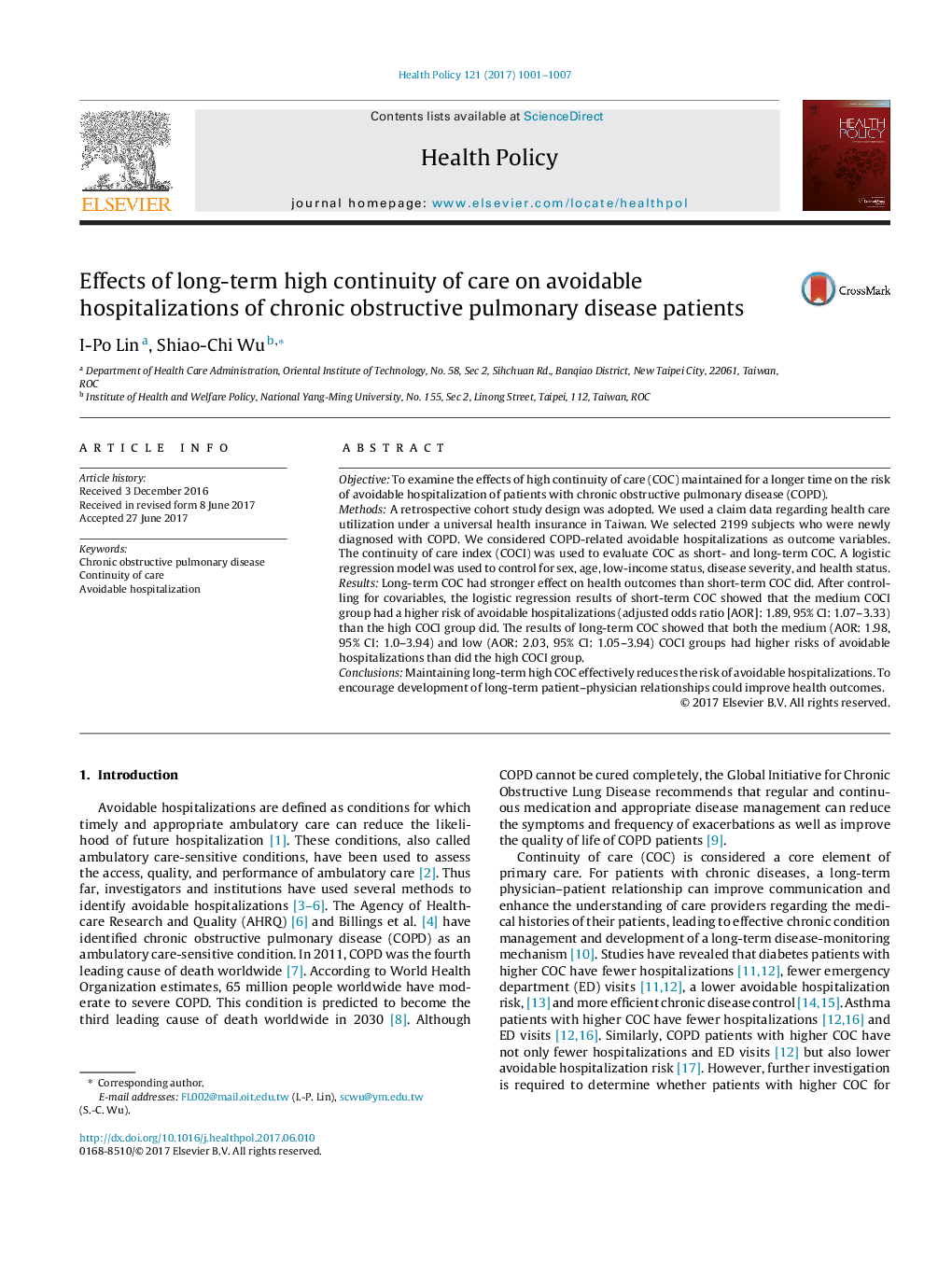| Article ID | Journal | Published Year | Pages | File Type |
|---|---|---|---|---|
| 5723380 | Health Policy | 2017 | 7 Pages |
â¢Higher continuity of care had a lower risk of avoidable hospitalization.â¢Maintaining long-term high continuity of care effectively improve health outcomes.â¢Developing long-term patient-physician relationships could improve health outcomes.
ObjectiveTo examine the effects of high continuity of care (COC) maintained for a longer time on the risk of avoidable hospitalization of patients with chronic obstructive pulmonary disease (COPD).MethodsA retrospective cohort study design was adopted. We used a claim data regarding health care utilization under a universal health insurance in Taiwan. We selected 2199 subjects who were newly diagnosed with COPD. We considered COPD-related avoidable hospitalizations as outcome variables. The continuity of care index (COCI) was used to evaluate COC as short- and long-term COC. A logistic regression model was used to control for sex, age, low-income status, disease severity, and health status.ResultsLong-term COC had stronger effect on health outcomes than short-term COC did. After controlling for covariables, the logistic regression results of short-term COC showed that the medium COCI group had a higher risk of avoidable hospitalizations (adjusted odds ratio [AOR]: 1.89, 95% CI: 1.07-3.33) than the high COCI group did. The results of long-term COC showed that both the medium (AOR: 1.98, 95% CI: 1.0-3.94) and low (AOR: 2.03, 95% CI: 1.05-3.94) COCI groups had higher risks of avoidable hospitalizations than did the high COCI group.ConclusionsMaintaining long-term high COC effectively reduces the risk of avoidable hospitalizations. To encourage development of long-term patient-physician relationships could improve health outcomes.
